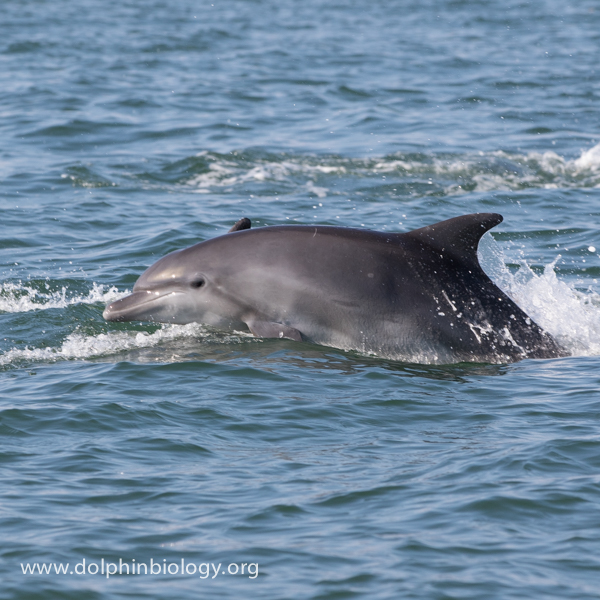31 July 2018
29 July 2018
Mediterranean most overfished sea
In the latest (2018) report by FAO on The State of World Fisheries and Aquaculture the Mediterranean tops the list of most overfished seas, worldwide.
See page 41 of the report linked below:
http://www.fao.org/3/I9540EN/i9540en.pdf
(Photo by S. Bonizzoni, Gulf of Corinth, Greece)
28 July 2018
27 July 2018
26 July 2018
25 July 2018
24 July 2018
Tight group
A tight group including about 40 bottlenose dolphins, encountered off Cavallino, Italy.
(Photos by S. Bonizzoni, Northern Adriatic Sea)
23 July 2018
22 July 2018
21 July 2018
At the Chioggia fish market
Today's presentation in the meeting room of Chioggia's fish market, featuring dolphin-fisheries interactions and the conservation management of protected species in the northern Adriatic. Thank you Sandro Mazzariol and Carlotta Mazzoldi for inviting us!
(Photos by S. Bonizzoni)
Dolphins and fisheries in Chioggia, Italy
Today Giovanni Bearzi presents an overview of dolphin research in the Adriatic Sea, together with Sandro Mazzariol and Carlotta Mazzoldi (University of Padova, Italy). The event is held at the Chioggia fish market.
20 July 2018
Anglers on a fishing charter
A recreational fishing charter off the region of Veneto, Italy.
(Photo by S. Bonizzoni, Northern Adriatic Sea)
19 July 2018
18 July 2018
17 July 2018
Protected
Bottlenose dolphin calf swimming between two adults.
(Photos by S. Bonizzoni, Northern Adriatic Sea)
16 July 2018
In a cloud of birds
Trawler on the way back to the port of Pila, with a flock of followers.
(Photos by S. Bonizzoni, Northern Adriatic Sea)
15 July 2018
14 July 2018
Dolphin and gas terminal
A bottlenose dolphin foraging two nautical miles south of the Adriatic LNG terminal.
(Photo by S. Bonizzoni, Northern Adriatic Sea)
13 July 2018
12 July 2018
Tight formation
Bottlenose dolphins surfacing in a tight formation, parallel to our inflatable: an ideal setting for individual photo-identification.
(Photos by S. Bonizzoni, Northern Adriatic Sea)
11 July 2018
Getting back
Trawlers getting back to their home port after fishing.
(Photo by S. Bonizzoni, Northern Adriatic Sea)
10 July 2018
09 July 2018
08 July 2018
07 July 2018
06 July 2018
Adriatic mucilage
First observations of mucilage macroaggregates off the region of Veneto, Italy.
(Photos by G. Bearzi, Northern Adriatic Sea)
P.S. Thank you Mauro Bastianini for pointing out that this is not "eutrophication".
04 July 2018
Sunset, storm approaching
Tired, and still far offshore as a cloud of rain approaches at sunset.
(Photo by G. Bearzi, Northern Adriatic Sea)
03 July 2018
Dolphins and midwater pair trawlers
Bottlenose dolphins off Chioggia, Italy, approaching two very large midwater pair trawlers hauling their net.
(Photo by S. Bonizzoni, Northern Adriatic Sea)
02 July 2018
Searching for consistency
In a 2009 editorial published in Conservation Biology, titled When Swordfish Conservation Biologists Eat Swordfish, I pointed out some inconsistency in the behaviour of conservation biologists, and advocated teaching through example.
Years ago, when I was a co-editor of the scientific journal Endangered Species Research, I used to receive journal issues wrapped in heavy plastic. More recently, some customers complained because the National Geographic Magazine issue on plastic pollution came... wrapped in a plastic bag inside another plastic bag. Though National Geographic says they will get rid of plastic wrappers by 2019, so far they haven't been teaching through example.
Being consistent and contributing to positive change is hard. Have you ever tried to avoid plastic when shopping at the average supermarket? One wonders why even organic, vegetarian and vegan food items still come with plastic packaging. And then, most of the time, the cashier won't see why you do not need a plastic bag to take away a small item.
Hopeless as it may seem, we should take our chance of contributing to a collective shift in behaviour. As famously stated by Margaret Mead, "Never doubt that a small group of thoughtful, committed citizens can change the world; indeed, it's the only thing that ever has." A recent study found that it takes 25% of people to start a revolution that eventually affects everybody. Being part of that 25%, being part of the solution, looks like a worthwhile challenge.
Giovanni Bearzi
01 July 2018
Marine swans
Entering Porto S. Margherita near Caorle, Italy, we see a number of beautiful swans feeding in marine waters as people walk by.
(Photo by S. Bonizzoni, Northern Adriatic Sea)
Subscribe to:
Comments (Atom)































